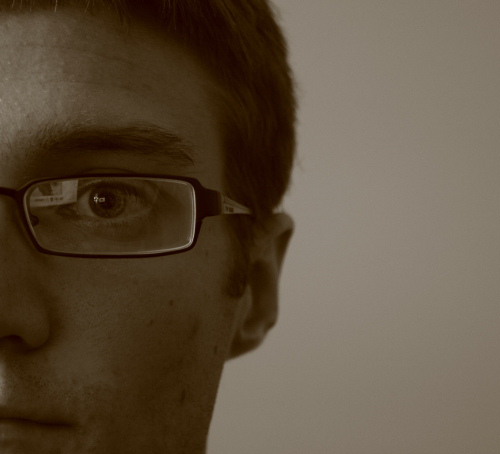
Thanks to Luke's Commonplace for this photo. He entitles it "United We Sit."
introspection (noun): an examination of one's own thoughts and feelings
-ivity :expressing state or condition
introspectivity: being in a state of examining one's own thoughts and feelings
 I have just finished reading Amusing Ourselves to Death by Neil Postman and he presents the case that television has dramatically changed our way of communicating since its conception. We are a society very much driven by images. This view on society is really undeniable if you think about it: billboards, quick news clips, magazines, commercials, etc. Our attention spans - as it seems to me - are shorter than ever before. (Think about the sitcom that begins and ends a whole story in about 20 minutes. Or I especially like the example of Fox New's "Around the World in 80 seconds" segment.) Anway, Postman goes on to explain that the Huxleyan (Brave New World) account is more true today than the Orewellian account (1984):
I have just finished reading Amusing Ourselves to Death by Neil Postman and he presents the case that television has dramatically changed our way of communicating since its conception. We are a society very much driven by images. This view on society is really undeniable if you think about it: billboards, quick news clips, magazines, commercials, etc. Our attention spans - as it seems to me - are shorter than ever before. (Think about the sitcom that begins and ends a whole story in about 20 minutes. Or I especially like the example of Fox New's "Around the World in 80 seconds" segment.) Anway, Postman goes on to explain that the Huxleyan (Brave New World) account is more true today than the Orewellian account (1984):"What Huxley teaches is that in the age of advanced technology, spiritual devastation is more likely to come from an enemy with a smiling face than one from one whose countenance exudes suspicion and hate. In the Huxleyan prophecy, Big Brother does not watch us, by his choice. We watch him, by ours. ... When a population becomes distracted by trivia, when cultural life is redefined as a perpetual round of entertainments, when serious public conversation becomes a form of baby-talk, when, in short, a become an audience and there public business a vaudeville act, then a nation finds itself at risk; culture-death is a clear possibility." (pp. 156-7)and again:
"For in the end, he [Huxley] was trying to tell us that what afflicted the people in Brave New World was not that they were laughing instead of thinking, but that they did not know what they were laughing about and why they had stopping thinking." (p. 163)The book is a great book to start your mind turning. Is television similar to the "soma" found in Brave New World? If so, what are the implications for us?
